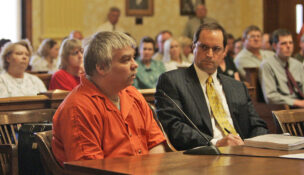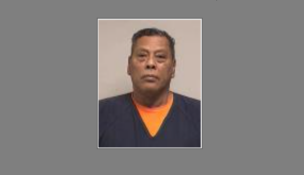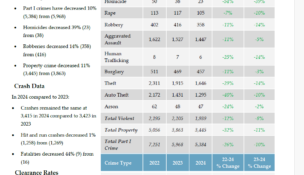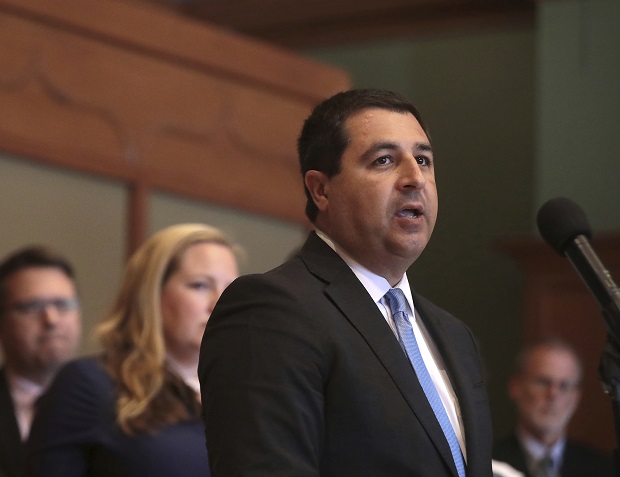Hurdles ahead for term-limit proposal
By: Eric Heisig//October 17, 2013//
Many agree that the State Bar’s support of a term-limit proposal for Wisconsin justices is important if the measure is going to gain traction.
The question, though, is whether that will be enough.
The change, which would limit state Supreme Court justices to single, 16-year terms, would have to be made by constitutional amendment. This requires being passed by the two houses of the Legislature and then winning the support of Wisconsin voters in an election.
The State Bar’s Judicial Task Force, which came up with the proposal, wants to see the amendment pass as early as 2017, said Joe Troy, a member of the group.
The bar’s Board of Governors, during its meeting in September, voted overwhelmingly to support the move. According to the task force and other supporters, term limits could reduce some of the electioneering that increasingly has dominated the public’s perception of what should be a bench devoid of politics.
“What we accomplish with this plan, above all else,” Troy said, “is once a justice is elected, their only constitutional concern will be the rule of law. And [they] will never have to be a politician while serving as a justice.”
Many BOG members before and after the vote said the plan might not be perfect, but it could be better than the current system. It’s important, board member Ray Dall’Osto said, to get the matter of reforming the state’s high court to the forefront and debate its merits in public.
The current legislative session ends in March, however, and Troy has not revealed who will introduce the bill in the state Senate and Assembly.
An alternate proposal to replace state Supreme Court elections with a merit appointment process has been discussed by state Sens. Tim Cullen, D-Janesville, and Dale Schultz, R-Richland Center, but not been introduced in the Legislature.
Janine Geske, a Marquette professor and former Wisconsin Supreme Court justice, said there needs to be discussion of methods to restore integrity to the court. Although Geske said she initially was not a fan of the term-limit proposal, she said it might just need to be put out for debate.
“It’s hard to figure out how you’re going to solve this problem,” Geske said. “Maybe [this proposal] makes sense.”
But the term-limit proposal has several critics, including state Senate judiciary committee chairman Sen. Glenn Grothman, R-West Bend.
Grothman said he doesn’t think the proposal is a good idea, in part because a single, 16-year term might dissuade older candidates from running for office.
“Why would they think,” he added, “we would ever be better off with elected officials who never have to run for office again? That’s just strange.”
Richard Esenberg, an adjunct professor at Marquette University who teaches a class on the state Supreme Court, agreed the 16-year term might be a tough selling point. Ten years already is a long term, he said.
“You’re essentially telling the public that it has no recourse for a period of time,” Esenberg said.
Mike McCabe, executive director of the Wisconsin Democracy Campaign, said term limits might result in Supreme Court elections “more plagued by special interest, because the interest groups would see the one shot they have for 16 years to see who would sit in those seats.”
Others, such as Andrea Kaminski, executive director of the League of Women Voters of Wisconsin, are still debating.
“[The proposal] does seem to address some of the concerns, on first blush,” she said. But the organization has not taken a position on the subject.
Troy and the bar are moving forward, trying to build off the support earned at the September meeting. Troy said he and bar staff members are starting to work on a game plan for gaining the necessary support.
The biggest thing they’ll need, he said, is time. Using the Board of Governors as an example, he said the proposal “probably would not have gotten a majority” with that group if he and his committee weren’t given the time to explain what he sees as the benefits.
“Once they had time to understand, they were overwhelmingly favorable,” Troy said, “and we think that pattern will continue.”
Legal News
- Steven Avery prosecutor Ken Kratz admits ‘mistakes were made’
- Colombian national extradited to Milwaukee faces International narcotics-trafficking conspiracy charge
- MPD: Milwaukee homicides down nearly 40 percent compared to last year
- EVERS: Republican lawmakers No-Show at special meeting to release statewide PFAS funding, stabilize healthcare access
- Wisconsin ICAC Task Force conference on Missing and Exploited Children highlights increase in sextortion cases
- More than 300 Wisconsin officers back in law enforcement after being fired or forced out
- Former Trump staffer who said to ‘fan the flame’ after 2020 loss hired to lead Wisconsin GOP
- Gov. Evers appoints David Casey to Serve as DOR Secretary
- Former Marine sentenced for Molotov Cocktail attack against Planned Parenthood Clinic
- ABA names 34th Annual Margaret Brent Women Lawyers of Achievement Awards honorees
- FBI launches criminal investigation into Key Bridge collapse
- Man charged in slaying after woman’s leg found at Milwaukee-area park
WLJ People
- Power 30 Personal Injury Attorneys – Russell Nicolet
- Power 30 Personal Injury Attorneys – Benjamin Nicolet
- Power 30 Personal Injury Attorneys – Dustin T. Woehl
- Power 30 Personal Injury Attorneys – Katherine Metzger
- Power 30 Personal Injury Attorneys – Joseph Ryan
- Power 30 Personal Injury Attorneys – James M. Ryan
- Power 30 Personal Injury Attorneys – Dana Wachs
- Power 30 Personal Injury Attorneys – Mark L. Thomsen
- Power 30 Personal Injury Attorneys – Matthew Lein
- Power 30 Personal Injury Attorneys – Jeffrey A. Pitman
- Power 30 Personal Injury Attorneys – William Pemberton
- Power 30 Personal Injury Attorneys – Howard S. Sicula











